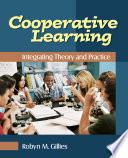
Doing Real Research
A Practical Guide to Social Research
Challenging the formality and idealized settings of conventional methods teaching and opting instead for a real world approach to social research this book offers frank, practical advice designed to empower students and researchers alike. Theoretically robust and with an exhaustive coverage of key methodologies and methods the title establishes the cornerstones of social research. Examples reflect research conducted inside and outside formal university settings and range from the extremes of war torn countries to the complexities of school classrooms. Supported by a wealth of learning features and tools the textbook and website include: · Video top tips · Podcasts · Full text journal articles · Interviews with researchers conducting field research · Links to external websites and blogs · Student exercises · Real world case studies
- ISBN 13 : 1473944295
- ISBN 10 : 9781473944299
- Judul : Doing Real Research
- Sub Judul : A Practical Guide to Social Research
- Pengarang : Eric Jensen, Charles Laurie,
- Kategori : Social Science
- Penerbit : sage
- Bahasa : en
- Tahun : 2016
- Halaman : 400
- Halaman : 400
- Google Book : https://play.google.com/store/books/details?id=STWmCwAAQBAJ&source=gbs_api
-
Ketersediaan :
Challenging the formality and idealized settings of conventional methods teaching and opting instead for a real world approach to social research this book offers frank, practical advice designed to empower students and researchers alike.









